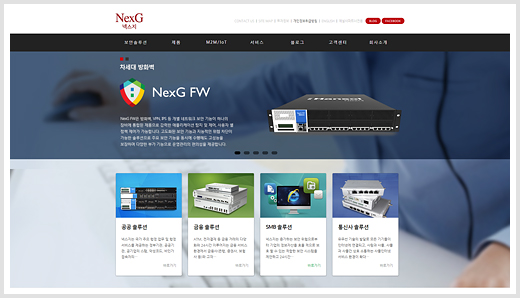NexG
Service
IX Peering, Transit
SectorIT·IC
NexG is a company that offers various security solutions such as firewalls and UTM. The company chose KINX’s network services to build high-availability security solution infrastructure for companies in the finance sector and public institutions.
#costreduction #reliableserviceoperation #안정적인서비스운영

Introduction

No. 1 Market Share in the Domestic VPN and UTM Solution Market
NexG is a company that specializes in security control services, integrated security and other fields related to network security. With the largest share of the domestic VPN and UTM solution market, the company has proven its technological competitiveness. More recently, the company has been expanding its business by entering into new markets with machine-to-machine (M2M) communication and mobile security solutions. It is also targeting the public market by registering its next-generation firewall (NexG FW) with the National Marketplace of the Public Procurement Service (PPS).
Background

Measures to Ensure Service Availability, Which Is Crucial for Security Solutions
NexG not only sells security products but also offers security services and security solutions. Among the security solution areas, they are particularly focused on solutions provided to companies in the finance sector and public institutions.
In the case of security solutions, it is paramount to minimize service delays and protect key computer resources against all kinds of cyber threats as a way to maintain the reliability of the user.
What did KINX do?

Proposed Local Peering and Transit for High Availability and Cost Reduction
In order to achieve fault tolerance in the security solutions and reduce costs, we proposed a network redundancy configuration based on local peering and transit.
Local peering, a service that is solely offered by KINX in Korea, enables mutual exchanges of traffic on a settlement-free basis with some 40 peering members including major ISPs, SOs, and CPs in Korea leading to 895G peering traffic on the network. This helps not only improve the Internet quality but also reduce the connection cost. At present, 3 million people, accounting for approximately 17% of all Internet subscribers in Korea, access the Internet via KINX.
The transit service enables interconnection with various line operators for the company. The company can freely purchase the transit of any domestic or overseas carrier operator of their choosing. This allows the company to use the Internet via the optimal routing path and even purchase transit from two or more operators.
Effect

Providing Uninterrupted Services Even in the Event of Failure
NexG was able to cut costs through local peering service and achieved network redundancy by also using transit service. Due to these services, even if an unexpected failure occurs in the network of their carrier, it is possible to continue service even if the local peering service fails via the second transit circuit and provide uninterrupted service. Introducing local peering also helped effectively reduce network costs through settlement-free traffic exchange with the IX members.


















